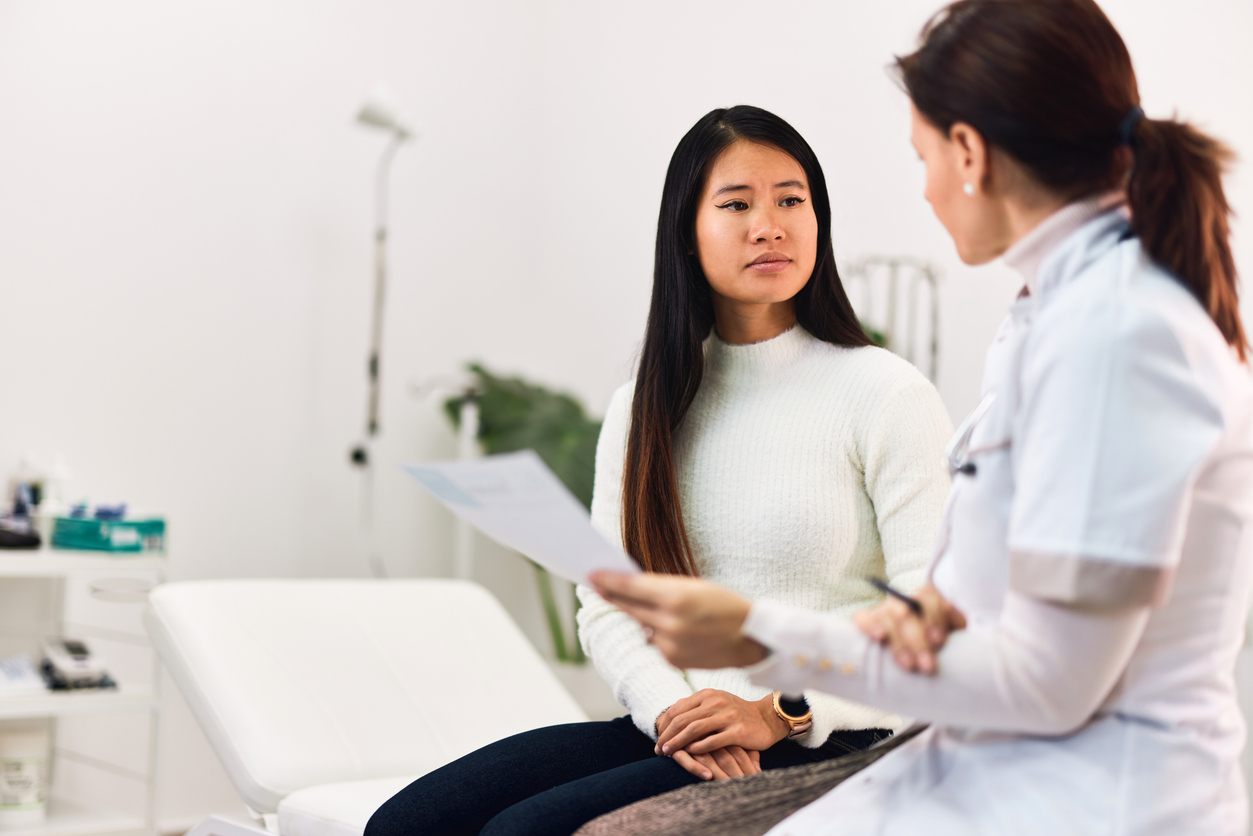What STD Causes Itching?

Itching in sensitive areas can be more than just an annoyance—it might be a sign of a sexually transmitted disease (STD). Understanding the connection between STDs and itching is vital for your health and overall well-being. In this article, we’ll explore the common STDs that cause itching, we’ll discuss the importance of STD testing and how to manage symptoms effectively.
Common Symptoms Often Present Alongside Itch Causing STDs
When it comes to sexually transmitted diseases that cause itching, the physical symptoms can vary depending on the specific infection. Itching is often one of the first signs that something might be wrong, but it’s important to remember that not all STDs cause itching, and not all genital itching is caused by STDs.
For STDs that do cause itching, you might experience discomfort in your genital area, anus, or both. The itching can range from mild to severe and may be accompanied by other symptoms. Some common physical signs to look out for include:
- Unusual discharge from the vagina or penis
- Burning sensation during urination
- Sores, blisters, or warts in the genital or anal area
- Redness, swelling, or irritation of the genitals
- Pain or discomfort during sexual intercourse
Please note that many STDs can occur without any noticeable symptoms, which is why regular STD testing is so important for sexually active individuals.
5 Common STDs That Cause Itching
We already know that several sexually transmitted diseases (STDs) can cause itching as a symptom, but let’s explore some of the most common STDs that cause itching and their associated symptoms.
Chlamydia
Chlamydia is a bacterial infection that often goes unnoticed due to its lack of symptoms. However, when symptoms do occur, they can include itching in the genital area. Women may experience vaginal itching, while men might feel itching near the opening of the penis. Other symptoms can include pain during urination and unusual discharge.
Gonorrhea
Gonorrhea, sometimes referred to as”the clap,” is another bacterial STD that can cause itching, particularly when it affects the anus. In addition to anal itching, you might experience discharge, bleeding, and pain during bowel movements. It’s important to note that gonorrhea often doesn’t cause noticeable symptoms, especially in women.
Trichomoniasis
Trichomoniasis, or “trich,” is caused by a microscopic parasite. It’s known to cause significant itching and irritation in the genital area. Women may experience vaginal and vulval itching, along with a change in vaginal discharge. Men might feel irritation inside the penis and have penile discharge.
Genital Herpes
Genital herpes, caused by the herpes simplex virus, can lead to itchy and painful sores around the genitals or rectum. These blisters can be accompanied by burning sensations, especially during urination. It’s worth noting that many people with genital herpes may not experience noticeable symptoms.
Genital Warts
Genital warts are caused by certain strains of the human papillomavirus (HPV). These warts can appear as small, cauliflower-like bumps in the genital or anal area. While they can cause itching, they’re often painless. Genital warts can vary in size and may appear weeks, months, or even years after sexual contact with an infected person.
How is an STD Diagnosed?
If you’re experiencing itching or other symptoms that might indicate an STD, it’s essential to seek immediate medical attention for proper diagnosis. AllCare providers use various diagnostic tests to identify specific sexually transmitted infections. These tests may include:
- Physical examinations to check for visible signs of infection
- Urine samples to detect certain bacterial infections
- Blood tests to identify viral infections or antibodies
- Swab tests of the affected area to collect samples for analysis
Something to be mentioned is that nucleic acid amplification tests (NAATs) are often used as they are highly sensitive and can detect even small amounts of an organism’s genetic material. These tests can be performed on various types of samples, including urine, vaginal swabs, and rectal swabs. Additionally, early diagnosis helps prevent the spread of infections to sexual partners because by identifying and treating STDs quickly, you can reduce the risk of passing the infection to others.
What are Treatments for STDs that Cause Itching?
If you’re experiencing an itchy public area due to a sexually transmitted disease (STD), it’s important to seek treatment promptly. Various options are available depending on the type of infection, and understanding these treatments can help you manage your symptoms effectively. Here’s a breakdown of common treatments:
- Antibiotics: For bacterial STDs like chlamydia and gonorrhea, antibiotics are often the first line of defense. Common medicatios include doxycycline or azithromycin for chlamydia and a combination of ceftriaxone and azithromycin for gonorrhea. Completing the full course is key to ensure the infection is fully eradicated. Please note: contact your AllCare physician to understand what STD medications are best for you and your symptoms.
- Antiviral Medications: Viral infection STDs, such as genital herpes, require antiviral medications. While these drugs can’t cure the infection, they help reduce symptoms and frequency of outbreaks.
- Topical Treatments: For conditions like genital warts that cause itching in private area, topical treatments may be effective. Cream medication or solution can be applied directly to the affected area to destroy wart tissue or enhance the immune response.
- Follow-up Care: After treatment, follow-up care is essential. This could involve retesting to ensure the infection is cleared, especially for bacterial STDs. For viral infections, managing recurring STD outbreaks and discussing prevention strategies are important.
Remember, while these treatments can effectively manage STDs that cause itching, prevention is always the best approach.
STD Testing & Itchy STD Treatment at AllCare
While these infections often lead to discomfort, early detection through regular STD testing is key, as symptoms may not always be immediately noticeable. Prompt itchy STD treatment and open communication with partners are essential in managing and preventing the spread of these infections. To ensure proper care and peace of mind, it’s a good idea to schedule an appointment at AllCare for STD testing and treatment today.